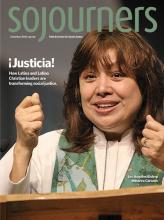WALTER BRUEGGEMANN is a leading authority of Old Testament interpretation and author of more than two dozen books. In this book he seeks to make a contribution to the application of biblical concepts of God’s chosen people and the promised land in the light of the contemporary Israeli-Palestinian conflict.
This book is slim, focused on the social justice issues and the relevance of key readings of Hebrew scripture to this conflict. It is written to be a manual for group discussions, particularly by Christian groups in churches. Brueggemann focuses on three main themes and their roots in scripture: the meaning of the “God’s chosen people,” the donation of the “holy land” to the “chosen people,” and the relation of Zion and Israel.
The “chosen people” are chosen by God as an arbitrary decision, writes Brueggemann, not based on any superiority of that people to others, but only on God’s love for them. It is an unconditional decision by God to choose this people with whom to have a special relationship. Yet this idea evolves in Israel’s history. There develops the theme that the people of Israel will be held especially accountable by God because of this relationship and punished for their iniquities (Amos 3:2). Isaiah suggests that, in a redemptive future, Egypt and Assyria will be chosen alongside Israel as a “blessing in the midst of the earth” (Isaiah 19:24-25).
Later heirs of the biblical tradition reinterpreted the idea of the chosen people to apply to themselves. Some in the Christian church saw itself as inheriting the status of God’s chosen people. Some in the United States regard this nation as a chosen people, occupying a new “promised land.”
Read the Full Article

